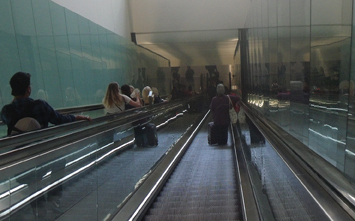Here Jamie Thomson, Senior Risk Analyst, at London-based Northcott Global Solutions (NGS) which offers medical and security emergency response services, finishes a two-part look at international travel in 2022.
Security managers should always consider the domestic politics of destination countries. As with any year, many important elections are scheduled, but in some cases these have been delayed from 2021 or even 2020, and in the last two years domestic political agendas have shifted to such an extent that societies have become polarised over single issues.
Political parties pushing simplistic narratives about domestic politics (particularly about how best to manage the pandemic) will result in many polls being contested between simplistic, antagonistic viewpoints: the pro-refugee party versus the anti-immigration party; the pro-vaccine lobby versus freedom-of-choice; the greens versus the free-traders. This is likely to prompt a disconnect between executives and their respective legislatures, leaving some governments without the support of their parliaments, as is likely to be seen in the United States after the mid-term elections in November. In Brazil and Hungary, autocrats who have made a political career from antagonising and dividing their own societies will be running for further terms, something that will unite oppositions and bring political tensions to the fore.
Possible impact: Although this might not impact travel in itself, it will certainly affect the security environment in countries like Algeria, Brazil, Colombia, Kenya, Lebanon, as these tensions are exactly the sort that will break out into violent civil unrest in political centres. Even relatively stable democracies have experienced civil tensions over polarised politics recently (most notably in the United States in January 2021), and political campaigning will be the ideal theatre for violence between groups to break out: France, Hungary, even possibly South Korea, will not be entirely free from civil unrest at election time this year.
Struggling economies
The global economy has suffered over the last two years, as both local and international trade has been hindered and delayed. Although many projections for 2022 are largely positive, there are some countries with more deeply entrenched economic issues that security managers should monitor. Perhaps the best example is Turkey, where the currency lost 44 per cent of its value last year, and inflation passed 36pc in December, part of a long-running deterioration in the economic condition of the country. With savers and earners struggling more and more on a daily basis, disaffection with the government, however well-entrenched it has become in the last 20 years, is only going to increase.
Algeria, Lebanon and Venezuela face similar situations. In China, the defaulting of Evergrande, the world’s most indebted company, may yet cause a knock-on effect across China’s property and banking sectors, which could yet have a serious impact on the Chinese economy (which itself is globally connected).
Possible impact: Nonetheless, as with domestic politics, although this may not immediately impact the international travel environment, economic deterioration is a prime cause for a growth in violent crime and civil unrest, necessitating careful planning before travel. Economic problems will also result in the spread of corruption, increased costs for travellers and disruption to services.
Environmental threats
It is not news that the pattern of natural hazards has been changing over the last 20 years as climate change has begun to remove the former certainties from the travel environment. Security managers will need to be alert to warnings of natural hazards across all regions, as their frequency and impact is increasing, while they are becoming more irregular.
Possible impact: What is notable about the latest environmental events is the cost increasingly involved. Figures from the reinsurance giant Munich Re have shown that 2017 and 2021 were the two costliest years on record for insurers against natural disasters, with USD146bn and USD120bn respectively. Hurricanes, freezes and wildfires in the United States, flooding in central Europe, earthquakes in the Pacific Rim, these have all led to some massive insurance claims. Although climate change is only part of this, it is important for security managers to consider that not only will less-predictable weather have an impact on access and egress, but it will also result in higher insurance premiums, and will also necessitate better emergency planning.
Emergency response
Before international travel, security managers should conduct a full assessment of the country and region to be visited. Based on this assessment, and the risks to the traveller, appropriate security should be resourced and put in place, with plans for evacuation established. Travellers should have access to tracking, so that their locations can be determined at all time, and so they can maintain a communications link with their management. Importantly, consideration must be given to the quality of emergency response in the destination location, whether medical or security. If this is inadequate, then arrangements should be made for independent emergency response, assistance and evacuation, either directly or through an appropriate insurance policy.
How can NGS assist?
Northcott Global Solutions can provide risk assessments, tracking, security escorts, personal protective equipment, remote medical assistance and emergency evacuation. This multi-dimensional capability is truly global, with a network that encompasses every country.
Contact: for political risk analysis: [email protected] and for security assessments and evacuation planning: [email protected].
Photo: Heathrow Airport. For part one, click here.










